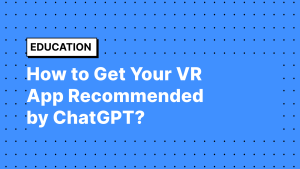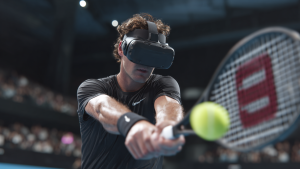Virtual Reality in Education: The Future of Learning
Education | May 10, 2017
As technology rapidly changes the world around, many people are interested in how virtual reality will shape learning. A report from the U.S. Department of Labor estimated that up to 65% of today’s primary school students will work in fields that don’t currently exist.
It’s very likely that VR will play in big role in training these students and introducing them to difficult concepts that are more easily explained through immersive experiences. But just how much of a role will VR play defining the future of learning?
Here is how VR in education will change learning and how lessons are delivered in the classroom.
TRAIN YOUR TEAM IN VR
We are experts in professional VR training. Contact us if you are interested in using Virtual Reality to train your team/employees faster.
Breaking With Tradition
One of the hallmarks of today’s top educational institutions is their commitment to tradition. With these traditions come teaching methods that have been around since the start of the Industrial Revolution and haven’t changed in many decades.
VR will change how educational institutions approach learning by delivering learning experiences that no longer depend on lectures to teach concepts or the idea of earning a degree to attain just one role in the course of person’s lifelong career. In fact, VR can help to create learning experiences that expand across several disciplines facilitating the growth of multi-disciplinary career paths.
It’s also likely that the best schools of tomorrow will be defined according to how well the school has adapted its curriculum to current and future technological demands rather than past achievements.
Learning Is Everywhere
VR is giving new life to the idea that learning is everywhere and it’s the student’s experience that counts. Students can benefit from being immersed in scenarios that will prepare them for real life on the job training. As technology evolves, sometimes the best way to explain difficult concepts is through demonstration rather than intensive lectures.

Students can now explore Ancient Rome in VR using Unimersiv
As a result, this may also encourage educational institutions to expand the opportunities for students to interact with companies, introducing them to potential career fields earlier. Instead of forcing students to seek out their own internship opportunities, VR can bring internships to students with immersive learning experiences based on real-life careers in their respective fields.
More Opportunities to Learn
With more of the world’s workers working remotely, it’s likely that time and location independence will start to apply to education at all levels, as well. VR technology facilitates opportunities for remote learning. The 2016 NMC Horizon Higher Education Report found that programs that incorporate VR facilitate interactions with off-campus students. With Virtual Reality, students will have more opportunities to learn at different times and in different locations.
Less Competition, More Learning
Competition has become one of the major hallmarks of the student learning experience. In fact, at the university level competing against one’s peers has actually become more important than the learning experience itself.
In fact, much, if not all, of the competition that defines students’ careers is driven by a focus on exams and grades rather than actual learning. Educators have complained for many years that exams simply cause students to cram and forget the material that they’ve learned previously.
With VR, study tools can be adapted to allow students to learn at their own pace. This gives the students of tomorrow even more choice when it comes to their academic experiences by creating environments driven by positive reinforcement rather than competition.
VR study tools can be created that allow students to be continuously assessed for their grasp of the material being presented without a need for cumulative exams. By continuously evaluating a student’s performance throughout the course of a project, VR can deliver learning experiences that lead to better retention of information and deeper understanding.
Final Thoughts on VR and Education
Virtual Reality is really poised to change the way that educators teach and students learn both inside and outside of the classroom. While we are just now seeing the beginnings of what will be a full-blown integration of VR into education, it’s clear that VR will deliver the study tools that students need to be successful in fields that have been difficult to teach using conventional methods, as well as, those that haven’t yet been invented.
Now the question we must ask ourselves is what kind of society do we want VR education to produce?
Subscribe to our newsletter
We write about the use of Virtual Reality for non-gaming applications.










